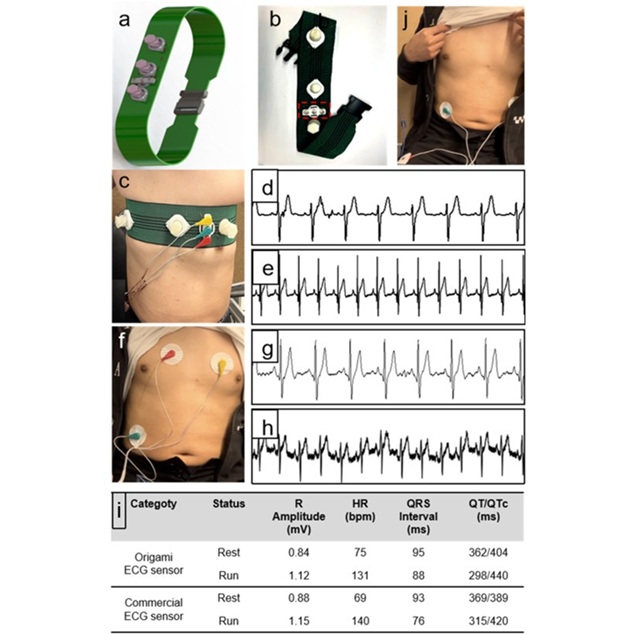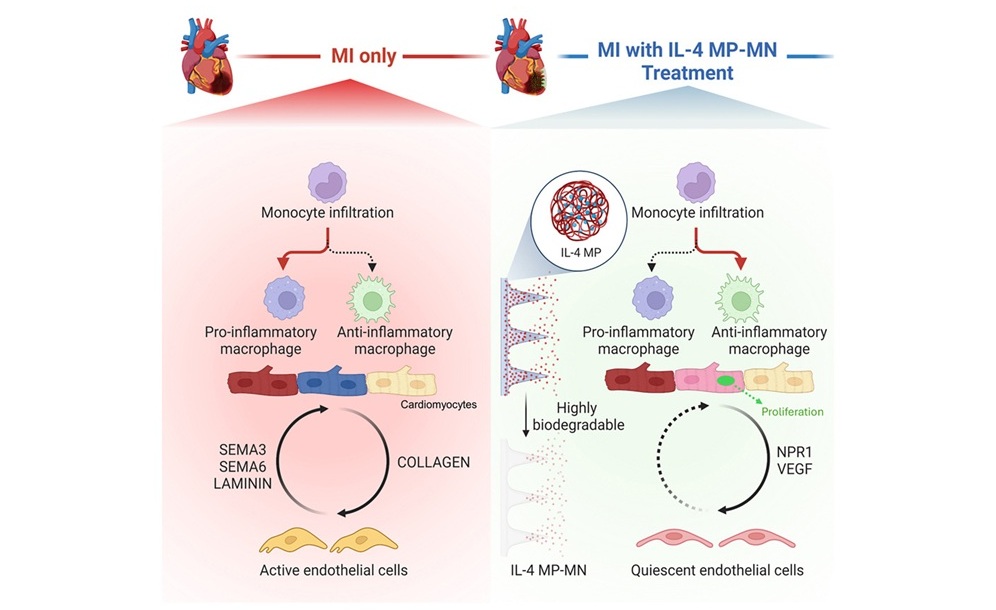First-of-Its-Kind Rapid Test Could Identify Which COVID-19 Patients Are Responding to Drug Treatments
|
By HospiMedica International staff writers Posted on 15 Dec 2020 |

Illustration
A new study shows that a first-of-its-kind rapid test could identify which COVID-19 patients are responding to drug treatments and which patients are still deteriorating and need higher doses of medication.
The findings on the study by researchers at the Rabin Medical Center (Petah Tikva, Israel) using a blood test from MeMed Diagnostics (Haifa, Israel) were presented at the virtual 2020 AACC Annual Scientific Meeting & Clinical Lab Expo.
Studies are now showing that drugs known as corticosteroids reduce the risk of death in critically ill COVID-19 patients by one-third. In spite of the promise of these drugs, though, clinicians still have concerns about their potential side effects. Corticosteroids work by dampening the activity of a patient's immune system to prevent it from attacking and damaging the lungs. Clinicians therefore worry that prescribing these drugs either too early or at too high a dosage could worsen a patient's condition by hindering the body's ability to clear the virus.
A team of researchers have now demonstrated that MeMed's 15-minute blood test for the protein interferon gamma induced protein 10 (IP-10) could help guide treatment with corticosteroids. Using this test, the researchers measured IP-10 levels twice a day over the course of a month in 52 SARS-CoV-2 positive patients, 26 of whom developed severe COVID-19. This revealed that severe patients had very high median IP-10 levels (1,190 pg/mL) compared to the median IP-10 levels of the non-severe group (328 pg/mL). In 17 of the severe patients treated with corticosteroids, though, median IP-10 levels fell from 2,961 pg/mL to 372 pg/mL within 3-5 days. Only two of these patients eventually died of COVID-19-related complications, and both of them exhibited IP-10 flare-ups of >1,000 pg/mL after initiation of corticosteroids.
"Our findings show that IP-10 testing could be used to identify patients who are not responding to standard corticosteroid regimens and who need more aggressive treatment - something that physicians were afraid to resort to before, because they didn't know what effect it would have," said Dr. Tahel Ilan Ber, MD, who led the study.
Related Links:
Rabin Medical Center
MeMed Diagnostics
The findings on the study by researchers at the Rabin Medical Center (Petah Tikva, Israel) using a blood test from MeMed Diagnostics (Haifa, Israel) were presented at the virtual 2020 AACC Annual Scientific Meeting & Clinical Lab Expo.
Studies are now showing that drugs known as corticosteroids reduce the risk of death in critically ill COVID-19 patients by one-third. In spite of the promise of these drugs, though, clinicians still have concerns about their potential side effects. Corticosteroids work by dampening the activity of a patient's immune system to prevent it from attacking and damaging the lungs. Clinicians therefore worry that prescribing these drugs either too early or at too high a dosage could worsen a patient's condition by hindering the body's ability to clear the virus.
A team of researchers have now demonstrated that MeMed's 15-minute blood test for the protein interferon gamma induced protein 10 (IP-10) could help guide treatment with corticosteroids. Using this test, the researchers measured IP-10 levels twice a day over the course of a month in 52 SARS-CoV-2 positive patients, 26 of whom developed severe COVID-19. This revealed that severe patients had very high median IP-10 levels (1,190 pg/mL) compared to the median IP-10 levels of the non-severe group (328 pg/mL). In 17 of the severe patients treated with corticosteroids, though, median IP-10 levels fell from 2,961 pg/mL to 372 pg/mL within 3-5 days. Only two of these patients eventually died of COVID-19-related complications, and both of them exhibited IP-10 flare-ups of >1,000 pg/mL after initiation of corticosteroids.
"Our findings show that IP-10 testing could be used to identify patients who are not responding to standard corticosteroid regimens and who need more aggressive treatment - something that physicians were afraid to resort to before, because they didn't know what effect it would have," said Dr. Tahel Ilan Ber, MD, who led the study.
Related Links:
Rabin Medical Center
MeMed Diagnostics
Latest COVID-19 News
- Low-Cost System Detects SARS-CoV-2 Virus in Hospital Air Using High-Tech Bubbles
- World's First Inhalable COVID-19 Vaccine Approved in China
- COVID-19 Vaccine Patch Fights SARS-CoV-2 Variants Better than Needles
- Blood Viscosity Testing Can Predict Risk of Death in Hospitalized COVID-19 Patients
- ‘Covid Computer’ Uses AI to Detect COVID-19 from Chest CT Scans
- MRI Lung-Imaging Technique Shows Cause of Long-COVID Symptoms
- Chest CT Scans of COVID-19 Patients Could Help Distinguish Between SARS-CoV-2 Variants
- Specialized MRI Detects Lung Abnormalities in Non-Hospitalized Long COVID Patients
- AI Algorithm Identifies Hospitalized Patients at Highest Risk of Dying From COVID-19
- Sweat Sensor Detects Key Biomarkers That Provide Early Warning of COVID-19 and Flu
- Study Assesses Impact of COVID-19 on Ventilation/Perfusion Scintigraphy
- CT Imaging Study Finds Vaccination Reduces Risk of COVID-19 Associated Pulmonary Embolism
- Third Day in Hospital a ‘Tipping Point’ in Severity of COVID-19 Pneumonia
- Longer Interval Between COVID-19 Vaccines Generates Up to Nine Times as Many Antibodies
- AI Model for Monitoring COVID-19 Predicts Mortality Within First 30 Days of Admission
- AI Predicts COVID Prognosis at Near-Expert Level Based Off CT Scans
Channels
Critical Care
view channel
Nanogel Technology Almost 100% Effective in Destroying Drug-Resistant Bacteria Within Hours
Antibiotic resistance is one of the most serious global health threats, driven by bacteria that evade treatment and form protective biofilms that shield them from drugs. Pathogens such as Pseudomonas aeruginosa,... Read more
Wearable Ultrasound Sensor Delivers Noninvasive Treatment Without Surgery
Wearable ultrasound devices have long struggled with low acoustic power and poor structural stability, limiting their use in high-resolution imaging and therapeutic applications. Conventional flexible... Read moreSurgical Techniques
view channelNovel Endoscopy Technique Provides Access to Deep Lung Tumors
Detecting lung cancer early can save lives, but diagnosing small tumors deep in the outer regions of the lungs remains a major clinical challenge. Although CT scans frequently identify tiny suspicious... Read more
New Study Findings Could Halve Number of Stent Procedures
When a coronary artery becomes acutely blocked during a heart attack, opening it immediately is essential to prevent irreversible damage. However, many patients also have other narrowed vessels that appear... Read morePatient Care
view channel
Revolutionary Automatic IV-Line Flushing Device to Enhance Infusion Care
More than 80% of in-hospital patients receive intravenous (IV) therapy. Every dose of IV medicine delivered in a small volume (<250 mL) infusion bag should be followed by subsequent flushing to ensure... Read more
VR Training Tool Combats Contamination of Portable Medical Equipment
Healthcare-associated infections (HAIs) impact one in every 31 patients, cause nearly 100,000 deaths each year, and cost USD 28.4 billion in direct medical expenses. Notably, up to 75% of these infections... Read more
Portable Biosensor Platform to Reduce Hospital-Acquired Infections
Approximately 4 million patients in the European Union acquire healthcare-associated infections (HAIs) or nosocomial infections each year, with around 37,000 deaths directly resulting from these infections,... Read moreFirst-Of-Its-Kind Portable Germicidal Light Technology Disinfects High-Touch Clinical Surfaces in Seconds
Reducing healthcare-acquired infections (HAIs) remains a pressing issue within global healthcare systems. In the United States alone, 1.7 million patients contract HAIs annually, leading to approximately... Read moreHealth IT
view channel
EMR-Based Tool Predicts Graft Failure After Kidney Transplant
Kidney transplantation offers patients with end-stage kidney disease longer survival and better quality of life than dialysis, yet graft failure remains a major challenge. Although a successful transplant... Read more
Printable Molecule-Selective Nanoparticles Enable Mass Production of Wearable Biosensors
The future of medicine is likely to focus on the personalization of healthcare—understanding exactly what an individual requires and delivering the appropriate combination of nutrients, metabolites, and... Read moreBusiness
view channel
Philips and Masimo Partner to Advance Patient Monitoring Measurement Technologies
Royal Philips (Amsterdam, Netherlands) and Masimo (Irvine, California, USA) have renewed their multi-year strategic collaboration, combining Philips’ expertise in patient monitoring with Masimo’s noninvasive... Read more
B. Braun Acquires Digital Microsurgery Company True Digital Surgery
The high-end microsurgery market in neurosurgery, spine, and ENT is undergoing a significant transformation. Traditional analog microscopes are giving way to digital exoscopes, which provide improved visualization,... Read more
CMEF 2025 to Promote Holistic and High-Quality Development of Medical and Health Industry
The 92nd China International Medical Equipment Fair (CMEF 2025) Autumn Exhibition is scheduled to be held from September 26 to 29 at the China Import and Export Fair Complex (Canton Fair Complex) in Guangzhou.... Read more


















